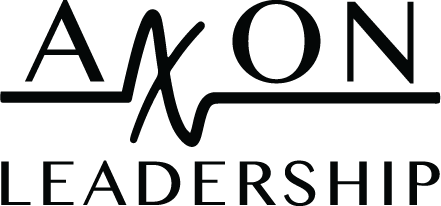As seen in
News
-

"Workplace burnout, by the book"
by Liz Scheier
Books
-

Getting Over Ourselves: Moving Beyond a Culture of Burnout, Loneliness, and Narcissism
-

Mindfulness (HBR Emotional Intelligence Series)
Includes “Mindfulness Can Literally Change Your Brain” and “Emotional Agility”
-

On Emotional Intelligence HBR’s 10 Must Reads On Emotional Intelligence
Includes “Emotional Agility”
-

Beyond Goals
Includes “The Goals Behind the Goals” with Robert Kegan and Susan David, along with two additional chapters
Articles
The World Needs Vulnerable Leaders
The word “leader” has long conjured an image of a stoic warrior on a battlefield. He has a strong jaw and a stiff upper lip. His armoring is impenetrable. He is ready to attack or defend.
While this vision offers much to be admired and will probably always be an element of leadership, the paradigm is shifting. There is a call for integration of additional qualities, with terms like “compassionate”, “authentic”, and “emotionally resonant” taking hold in the leadership lexicon. Brené Brown, in her viral 2010 TED talk, brought an even more challenging word into the conversation: vulnerability.
Millennials and Their Employers Want the Same Thing. They Just Don't Know it Yet.
We’re in the midst of a significant generational shift that is changing the face of work.
Baby boomers are retiring in droves, while millennials, those born from the early 1980s to the year 2000, have become the largest generation in the U.S. labor force. With the exodus of senior-level employees, organizations worry about “brain drain” and a “talent vacuum.” These concerns are supported by new research showing a talent shortage that has risen over the past five years, to its highest level since 2007. In fact, 40 percent of employers across the globe report hiring difficulties. Management and executive skills are among the hardest to find.
Don’t Let the Inner Critic Hijack Your Mindfulness Practice
If 2014 was the year of the “Mindful Revolution”, 2016 was the year that ended in mindfulness backlash.
“Actually, let’s not be in the moment,” author Ruth Whippman protested in an op-ed, calling mindfulness a “special circle of self-improvement hell, striving not just for a Pinterest-worthy home, but a Pinterest-worthy mind.” She echoed previous commentary from Professor Adam Grant who pleaded, after encountering elitist attitudes among certain mindful social circles, “Can we end the meditation madness?”
Four Steps For Shutting Up Your Inner Critic
According to Harvard scholars Robert Kegan and Lisa Laskow Lahey, our minds have similar defenses that our bodies do. Faced with change, each of us has something like a psychological immune system that works to maintain homeostasis in the ways we think, feel, and behave. Try to disrupt your habitual patterns, and it will kick in and attack the change like white blood cells going after a pathogen.
Mindfulness Can Literally Change Your Brain
The business world is abuzz with mindfulness. But perhaps you haven’t heard that the hype is backed by hard science. Recent research provides strong evidence that practicing non-judgmental, present-moment awareness (a.k.a. mindfulness) changes the brain, and it does so in ways that anyone working in today’s complex business environment, and certainly every leader, should know about.
Emotional Agility
Sixteen thousand—that’s how many words we speak, on average, each day. So imagine how many unspoken ones course through our minds. Most of them are not facts but evaluations and judgments entwined with emotions—some positive and helpful (I’ve worked hard and I can ace this presentation; This issue is worth speaking up about; The new VP seems approachable), others negative and less so (He’s purposely ignoring me; I’m going to make a fool of myself; I’m a fake).
Coaching at the Frontiers
Compare and contrast: Marshall Goldsmith, Jayson Blair, and me. First, I’ll tell you how we are different. Dr. Goldsmith has a reputation for doing “good work”. He is a New York Times and Wall Street Journal best-selling author, and according to Forbes one of the most influential business thinkers in the world. Mr. Blair is a former reporter for the New York Times. He notoriously engaged in “compromised work” by plagiarizing and fabricating news stories and was forced to resign, along with two editors, in 2003. As for me, I am a master’s student in Human Development and Psychology at the Harvard Graduate School of Education, currently reflecting on my professional aspirations.











